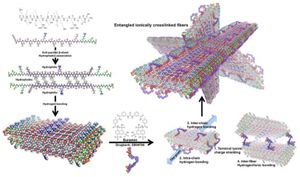BJP Marks Historic Comeback, Securing Delhi Assembly After 27 Years
NEW DELHI – The Bharatiya Janata Party (BJP) has triumphed decisively in the 2025 Delhi Assembly elections, winning 48 of the 70 seats and ending the Aam Aadmi Party's (AAP) decade-long reign. This victory marks the first time the BJP has held power in Delhi since 1998 and signals significant shifts within the political fabric of the capital.
According to official reports from the Election Commission of India, BJP's campaign, heavily backed by promises of development and good governance, outperformed the AAP's record of welfare policies. Notably, AAP faced severe backlash due to corruption allegations and declining public opinion.
Prime Minister Narendra Modi hailed the victory on social media, stating, "Development wins, good governance triumphs," signaling the BJP's commitment to address the plight of Delhi residents. Celebrations erupted at the BJP headquarters, where supporters waved party flags and participated in festivities, underscoring the party's renewed support among the electorate.
The AAP, which had previously dominated with resounding victories, saw its numbers dwindle dramatically. Chief Minister Arvind Kejriwal lost his seat to BJP's Parvesh Verma, conceding by over 4,000 votes. His deputy, Manish Sisodia, also faced defeat, losing his constituency by around 675 votes. Kejriwal acknowledged the outcome, stating, "We accept the mandate of the people with great humility," and pledged to serve as constructive opposition.
A notable factor influencing the election results was the BJP's strategic messaging, capitalizing on recent controversies surrounding AAP. Incidents like the "Sheesh Mahal" renovation scandal, where AAP was accused of excessive spending during the pandemic, were pivotal. Amit Shah, Union Home Minister, characterized the result as indicative of public dissatisfaction with AAP's governance. "Delhi has destroyed the Sheesh Mahal of lies, deceit, and corruption," he proclaimed.
The AAP, born from anti-corruption movements and originally lauded for its welfare policies, has seen its reputation sullied by recent allegations and misgovernance claims. Critiques surged, especially from prominent figures like activist Anna Hazare, who noted the party's moral decay as they became entwined with corrupt behavior. "The party born out of the movement against corruption got involved in corruption itself," lamented Modi, highlighting the irony of AAP's downfall.
Both parties faced off not merely on traditional political grounds but on tangible issues affecting daily life, such as water and air quality. Voters' discontent with the AAP's handling of these matters allowed the BJP to advocate for promises of improved infrastructure, emphasizing their intent to create "double-engine" governance, leveraging synergy between the state and central governments.
Within the newly elected assembly, AAP leaders expressed resolve to continue their fight. Atishi, the only AAP leader to win her seat, articulated her commitment, saying, "This is not the time for celebration; this is the time to fight. The battle against BJP's authoritarianism will continue." This sentiment reflects the party's need to recalibrate its strategy following significant losses.
The election results also underscored the fragmentation of the opposition, particularly the Congress Party, which failed to secure any seats for the third consecutive term. The absence of unification among opposition factions is seen as detrimental to their electoral success. Political analysts opined on the necessity for greater collaboration to challenge BJP's growing dominance.
With the political scene shifting dramatically, BJP's resurgence is indicative of broader trends across India, where they've gained substantial ground. Modi's performance as Prime Minister, marked by his appeal to middle-class values and the promise of good governance, resonates with voters seeking solutions to persistent urban issues.
Analysts predict the outcome of this election will have significant ramifications for the future of not only Delhi but for political alignments across India as parties reassess their approaches and strategies moving forward. The BJP aims to consolidate its newfound power, setting its focus on promises made during the campaign, particularly around the cleanliness of the River Yamuna and overall infrastructural health.
The electorate's choice reflects wider societal sentiments yearning for decisive action over political theatrics. Modi's ability to connect with diverse voter segments, particularly women and the economically disadvantaged, has reinvigorated the party's base, making it appear more relatable than its rivals.
Looking forward, the BJP is positioned to implement comprehensive policy measures aimed at addressing the issues raised during the campaign, particularly as they prepare to form the government under untested circumstances. The capital, once again under BJP governance, faces the challenge of fulfilling the heightened expectations set by its voters.
While the spectacle of the elections has concluded, the looming question now is whether the BJP can maintain its momentum and fulfil the promises laid out before the residents of Delhi. With changing political tides and heightened voter expectations, the forthcoming assembly terms are likely to redefine governance strategies and societal engagement across the spectrum.



